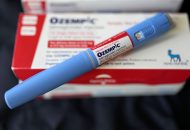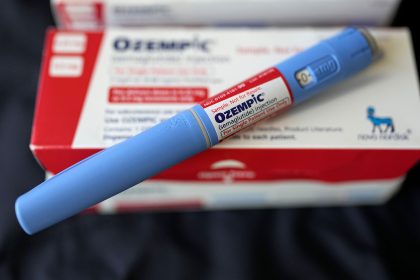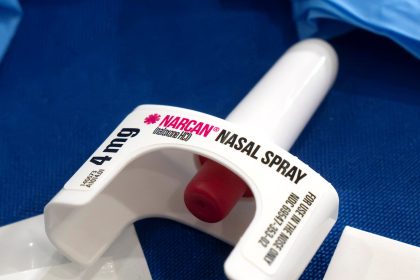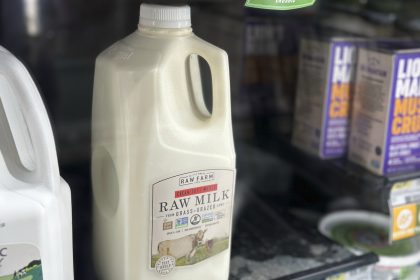Beets Are a Sweet Superfood You’ll Fall in Love With

WASHINGTON — “Eat this superfood. Try this functional food!” What makes a food super or functional? Nothing fancy, just nutrients. Brightly-colored, natural whole foods are often considered super or functional because colors indicate health-boosting phytonutrients.
Just in time for Valentine’s Day, we’re here to break down that bright red veggie: the beet. We’ll explain what superfoods are and why beets qualify. Then, we’ll dig into the beetroot and its nutritious components that can improve your heart health and exercise performance and leave you with some healthy recipe ideas.
What Does Superfood Mean?
The term “superfood” first appeared in the 1990s. It generally describes any nutrient-dense, whole food with many micronutrients that can improve health and prevent diseases. In some cases, superfoods refer to ancient foods that indigenous populations used for their medicinal properties.
Here are a few examples of superfoods:
- Spinach, kale, Swiss chard, collard greens, and other dark leafy greens.
- Blueberries, blackberries, strawberries, raspberries.
- Avocados.
- Salmon.
- Legumes and Beans.
- Nuts and Seeds.
- Garlic and Olive Oil.
- Ginger and Tumeric.
Beets as a Superfood
Beets are root vegetables that are high in fiber. According to the American Heart Association, they’re also a great source of folate, potassium, magnesium, B vitamins, vitamins A, C and K.
Beyond the vitamins, beets also contain two important factors influencing your health: nitrates and betalains.
- Nitrates: Beets are a great source of dietary nitrates. Nitrates increase nitric oxide, a natural gas in your body that relaxes blood vessels and improves blood flow.
- Betalains: Betalains are a nutrient-dense pigment with antioxidant properties. Red and purple beets contain a type of betalain called betacyanins that gives them their color. Yellow and golden beets contain a different kind of betalain called betaxanthins. There are also beet greens, which contain similar benefits to leafy green vegetables.
Healthy Reasons to Eat Beets
So, what’s the big deal about nitrates, nitric oxide and betalains? Let’s break it all down.
The American Heart Association, and other research, states that eating beets can help improve cardiovascular health, lower blood pressure, manage cholesterol levels, reduce inflammation and improve exercise performance.
Here’s how it all works.
Nitrates Boost Nitric Oxide:
- Lower Blood Pressure: Many studies show that consuming dietary nitrates from beetroot helps your body produce more nitric oxide. Nitric oxide widens your blood vessels, allowing more blood to flow freely through your heart and body. As shown in multiple studies, beetroot can lower blood pressure for people with hypertension (high blood pressure).
- Protect Heart Health: High blood pressure can lead to other cardiovascular diseases. Lowering blood pressure with beetroot helps prevent other conditions like atherosclerosis, a thickening of your arteries that reduces blood flow.
- May Improve Brain Health: Besides your heart, your body needs blood to flow well to your brain. Some age-related cognitive health disorders, like dementia and Alzheimer’s, can be worsened by poor blood flow. Scientists theorize that cognitive health could be improved by increasing nitric oxide to improve blood flow to the brain.
- Improve Exercise Performance: Nitric oxide also directly affects athletic performance. When you exercise, you need blood to flow freely to your muscles. Nitric oxide can also improve oxygen and nutrient delivery. Many studies show that beetroot as a pre-workout boost can improve endurance and reduce fatigue during sports and workouts.
Betalains Are Antioxidants:
- Reduce Inflammation: Research shows that betalains found in beetroot have antioxidant and anti-inflammatory properties. Antioxidants help prevent cellular damage, fight oxidative stress and reduce chronic inflammation caused by diseases like diabetes, liver disease, arthritis, cardiovascular diseases and certain cancers.
- Reduce LDL Cholesterol: There are two types of cholesterol: HDL or good cholesterol and LDL or bad cholesterol. Research shows beetroot’s antioxidant properties can help reduce your levels of bad cholesterol.
- Boost Immune System: A diet rich in antioxidants can also help strengthen your immune system, preventing diseases and illnesses.
Beets are also a decent source of fiber, which can improve your digestive health.
Best Ways to Eat Beets
There’s no wrong way to eat a beet. Here are some ideas to add them to your diet or for a fun red-themed Valentine’s Day meal.
- Eat them raw or pickled in salads or on their own.
- Pop them in the air fryer for healthy beet chips.
- Make beetroot juice or add beets to a smoothie to boost your energy before a workout.
- Add them to a soup.
- Roast them in the oven with olive oil.
- Boil or steam them.
- Try beet pasta or ravioli with goat cheese for more richness.
You Can’t “Beet” the Benefits
The rich red color of beets is not only eye-catching but also indicates their health-boosting antioxidants. Add this superfood to your next meal and enjoy the benefits.
You can reach us at [email protected] and follow us on Facebook and X (formerly known as Twitter)

























